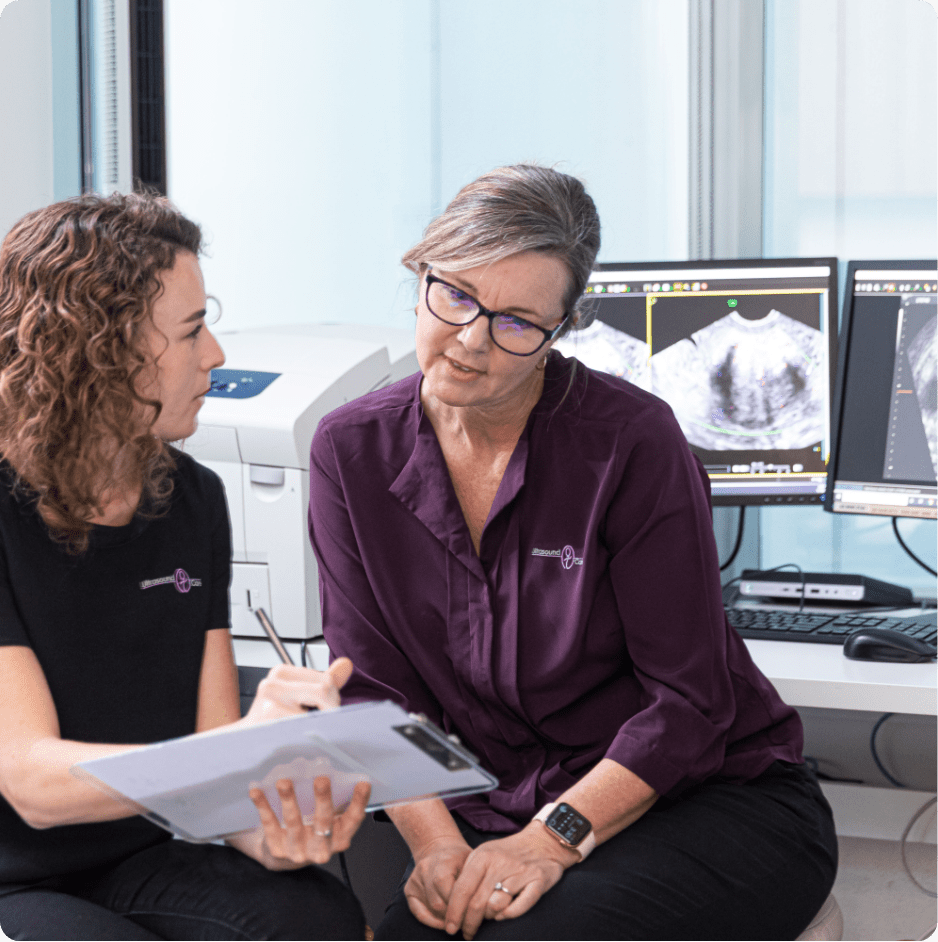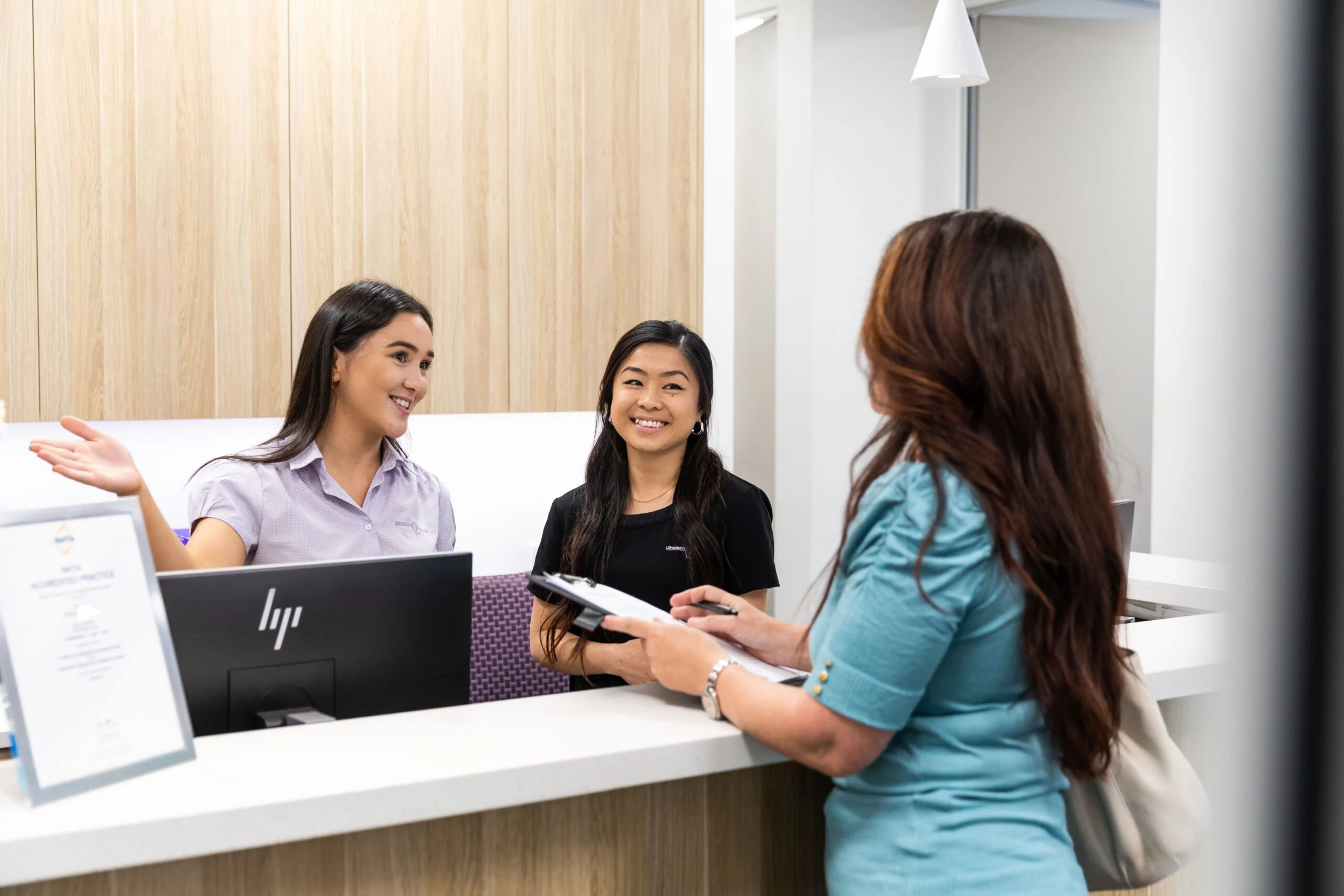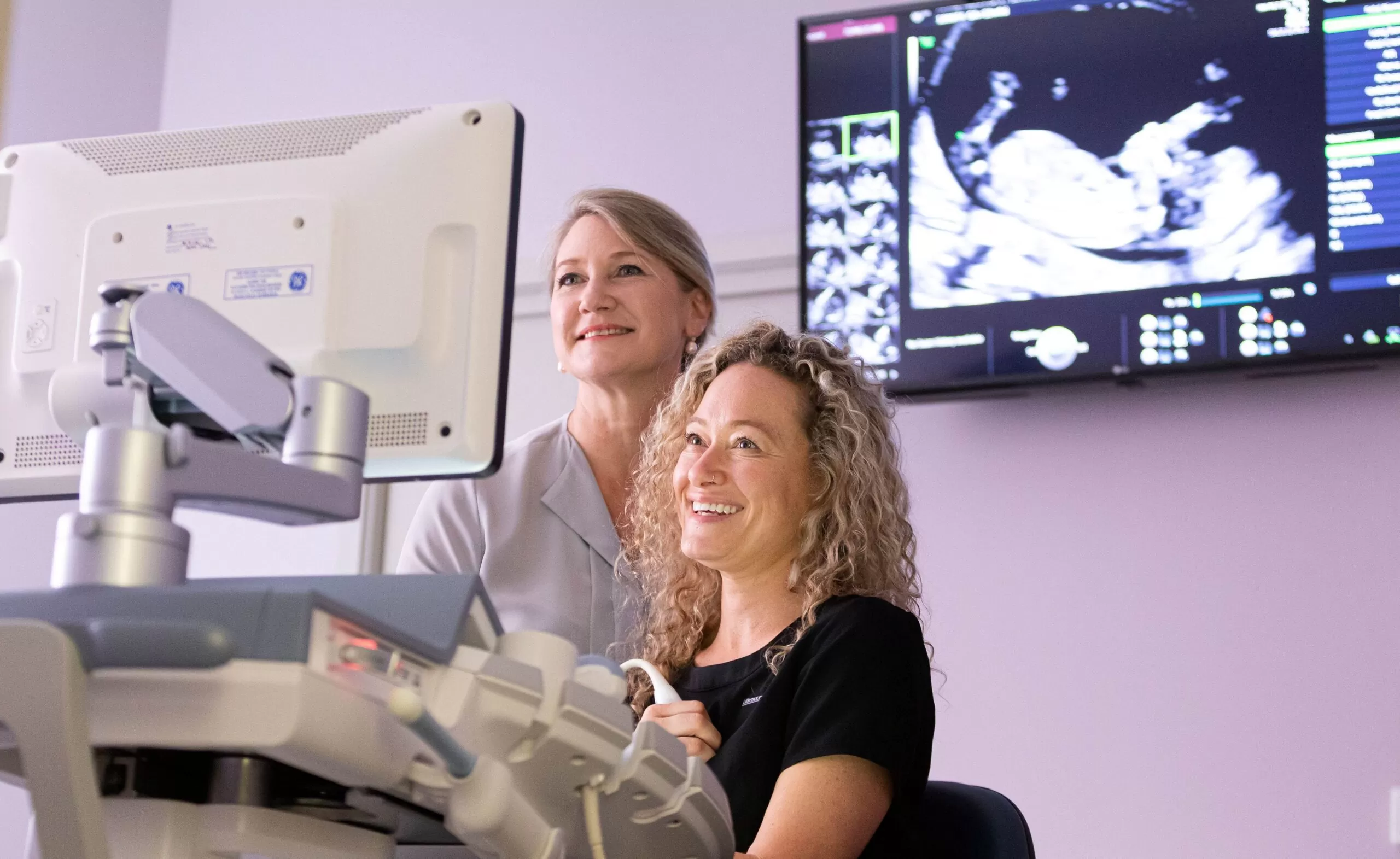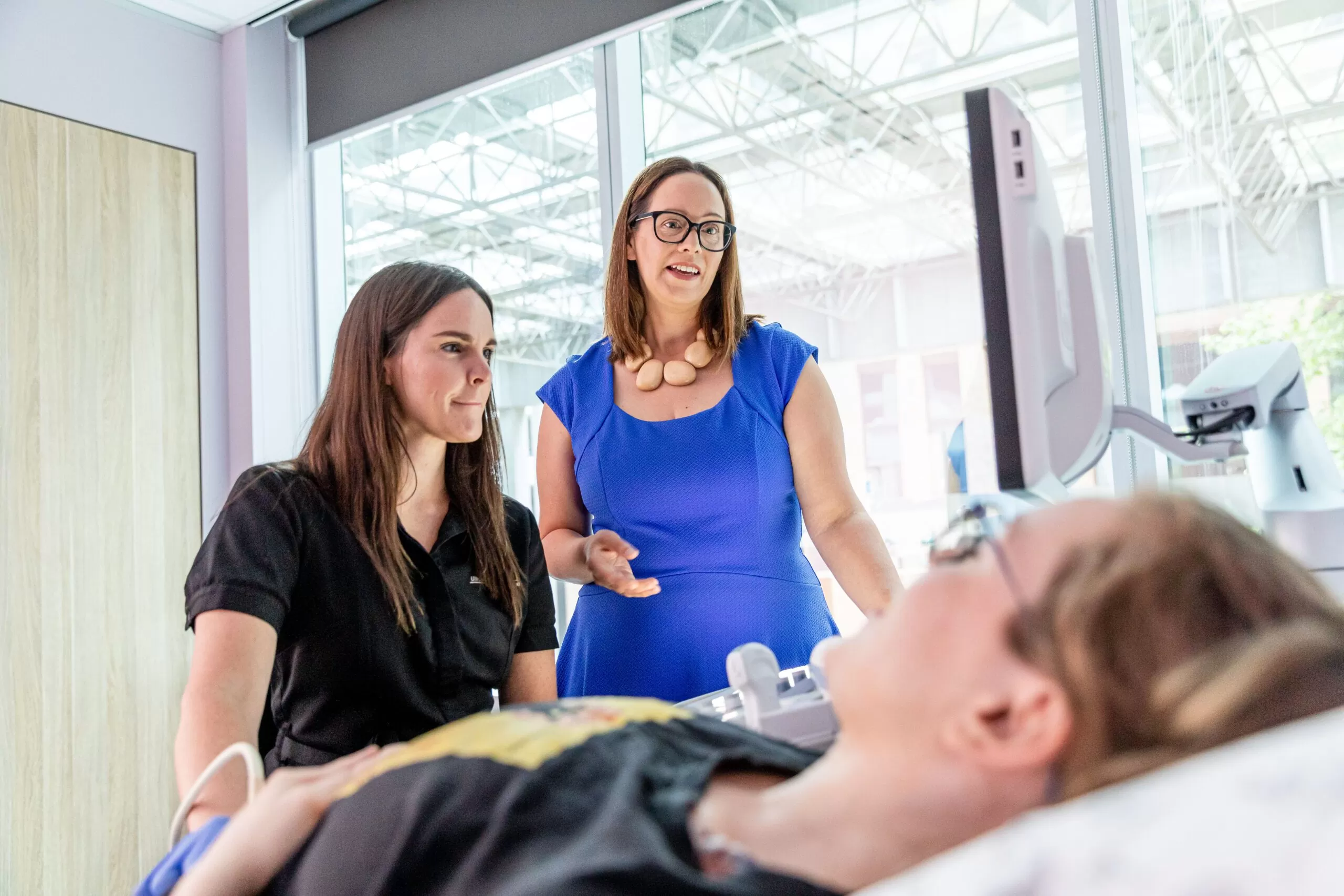Amniocentesis
What is an Amniocentesis?
Amniocentesis is a test which involves collecting a small sample of the amniotic fluid from the pregnancy sac. Cells from the baby are extracted from the fluid and then analysed. Amniocentesis is a test which Ultrasound Care may offer to a pregnant woman if your age, family or medical history, nuchal or blood test results suggests there may be a higher than normal chance of your having a baby with a chromosomal or genetic abnormality.
Amniocentesis is not a typical pregnancy test and the Ultrasound Care team will work with you to help you decide whether it is appropriate for you to have this test.
Who is offered an Amniocentesis?
- Women who have a high chance of their baby having Down syndrome or another chromosomal abnormality as identified on their NIPT cell free fetal DNA test.
- Women who have been identified as a high chance of their baby having Down syndrome or another chromosomal abnormality on their nuchal screening ultrasound.
- Women who have already had a child with a problem.
- Women who want a diagnostic test rather than a screening test.
- Parents who are known to have a chromosomal abnormality themselves.
- Parents who are known to carry a genetic condition.
- Parents who are known to be at risk of having a baby with one or a number of rare “metabolic” disorders.
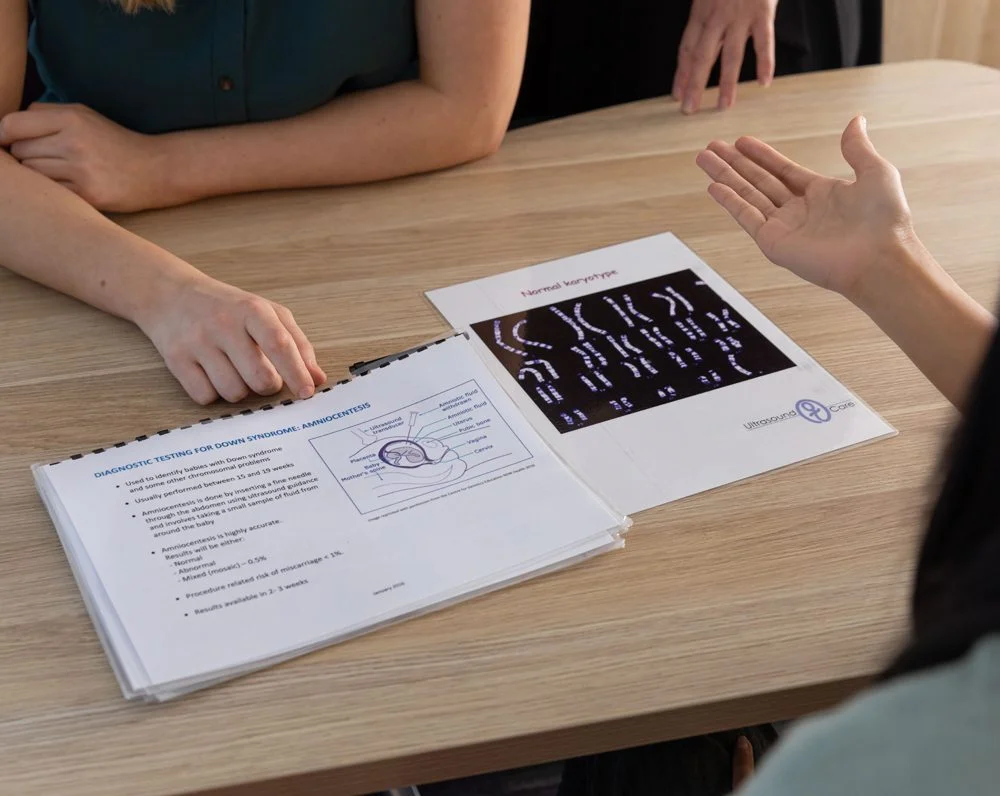
How and when is an Amniocentesis done?
Ultrasound Care can perform an amniocentesis at any stage after 15 weeks of pregnancy. It involves an ultrasound examination, which confirms the dates of your pregnancy and shows the position of the baby and placenta. A very narrow needle is inserted through the abdomen which is guided by ultrasound, our specialist doctor then withdraws a small amount of amniotic fluid (about one tablespoon or 20 – 30 mL) from the amniotic sac. Because the doctor is guided by ultrasound imaging, the needle does not touch your baby.
Laboratory tests
(CMA) testing
In order to get faster results, the laboratories have developed techniques called fast Fluorescent In-Situ Hybridization (Fast FISH) and DNA polymerase chain reactions (DNA PCR).
This can give us results for chromosomes 13, 18, 21, X & Y, in 24 hours. This is especially reassuring for women who have had a concerning result on their screening test for Down syndrome (trisomy 21).
(CMA) testing

Chromosome microarray (CMA) testing is a detailed genetic test which can detect extra or missing segments of DNA. As there are usually two copies of each chromosome, there should be two copies of each segment of DNA.
Using the amniocentesis sample the microarray can look for a variation in the number of copies of genes. This is known as a copy number variant. If the test finds a copy number variant, the laboratory checks which genes are duplicated or missing from this information, which allows us to predict what sort of problems your baby may have.
Everyone is an individual and all vary, so Ultrasound Care usually sends samples of blood from both parents to help the laboratory understand whether the copy number variant is inherited. This helps us determine the significance of the copy number variant for your baby.
 A karyotype utilises special procedures in the laboratory, where cells are grown in a culture medium. The cells are then fixed and stained.
A karyotype utilises special procedures in the laboratory, where cells are grown in a culture medium. The cells are then fixed and stained.
Using high power microscopy, the chromosomes in these cells can be examined allowing us to identify if the baby has Down syndrome, or any of the other known less common chromosome problems. Looking at the chromosomes also allows us to determine the sex of the baby.
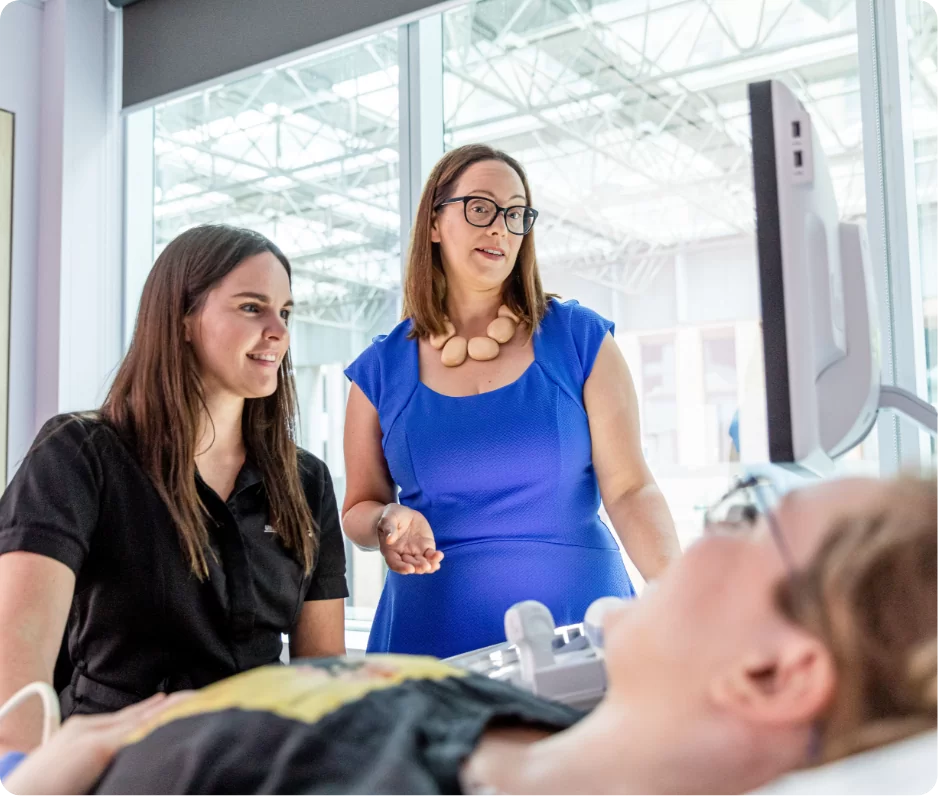
What happens on the day of the Amniocentesis test?
When you come for your ultrasound, it is not necessary for your bladder to be full, however, having a little urine in the bladder may make it easier to see the baby in the lower part of the uterus. During this examination, our sonographer will check the fetal number and size, and locate the placenta and the biggest pool of amniotic fluid.
We then prepare the abdomen with antiseptic and create an aseptic field with drapes. Your specialist Ultrasound Care doctor, then inserts a very narrow needle through the abdomen. There is no need for concern as your doctor is guided all the time by real-time ultrasound. It takes only about thirty seconds to one minute to draw up about a tablespoon of fluid into the syringe, and then the needle is removed.
After your procedure, we check your fetal heart motion and then you may go the bathroom and get dressed. We then ensure you take time to recover and ask you to sit quietly for 10 minutes or so before advising you to go home for a quiet day.
What happens with the Amniocentesis results?
One of the Ultrasound Care team will phone you with your results as soon as they become available, and we will also forward them to your referring doctor.
Fast FISH/DNA PCR results are usually available in 24-48 hours. The full karyotype usually takes 10-14 days; microarrays take 5-10 days.
Be assured, that we will ring you with all of your results whether they are normal or not. We will help you to understand what the results mean, and whether other tests are recommended, and you are welcome to come and see one of the specialists, geneticists or genetic counsellors to talk further.
Issues with test results
On rare occasions, we experience problems with the sample. It may fail to grow, or it may give a confusing result. These problems are very uncommon with an amniocentesis, but if they do occur our team will contact you and discuss your next steps.
Additionally, we all have a genetic variation I and sometimes we will need to test you and your partner to see if one of you has a similar chromosomal pattern.
